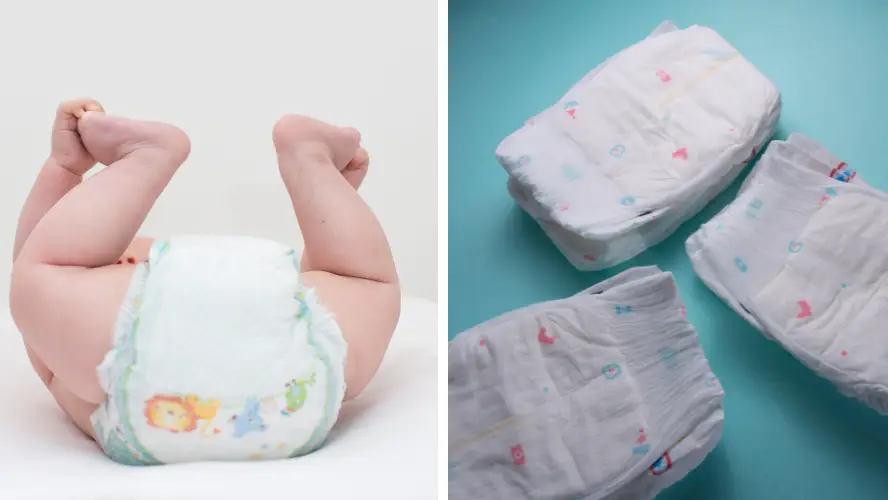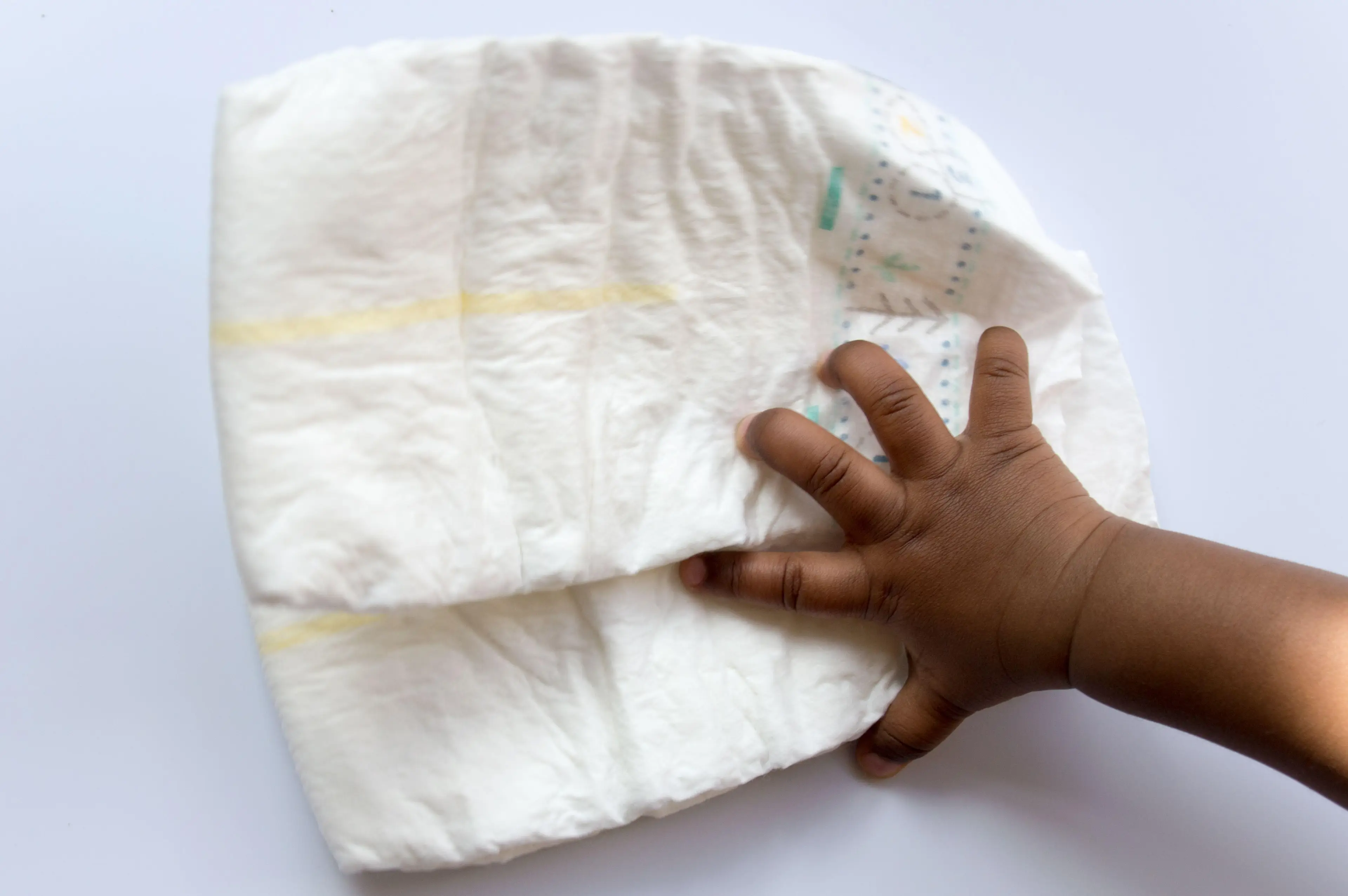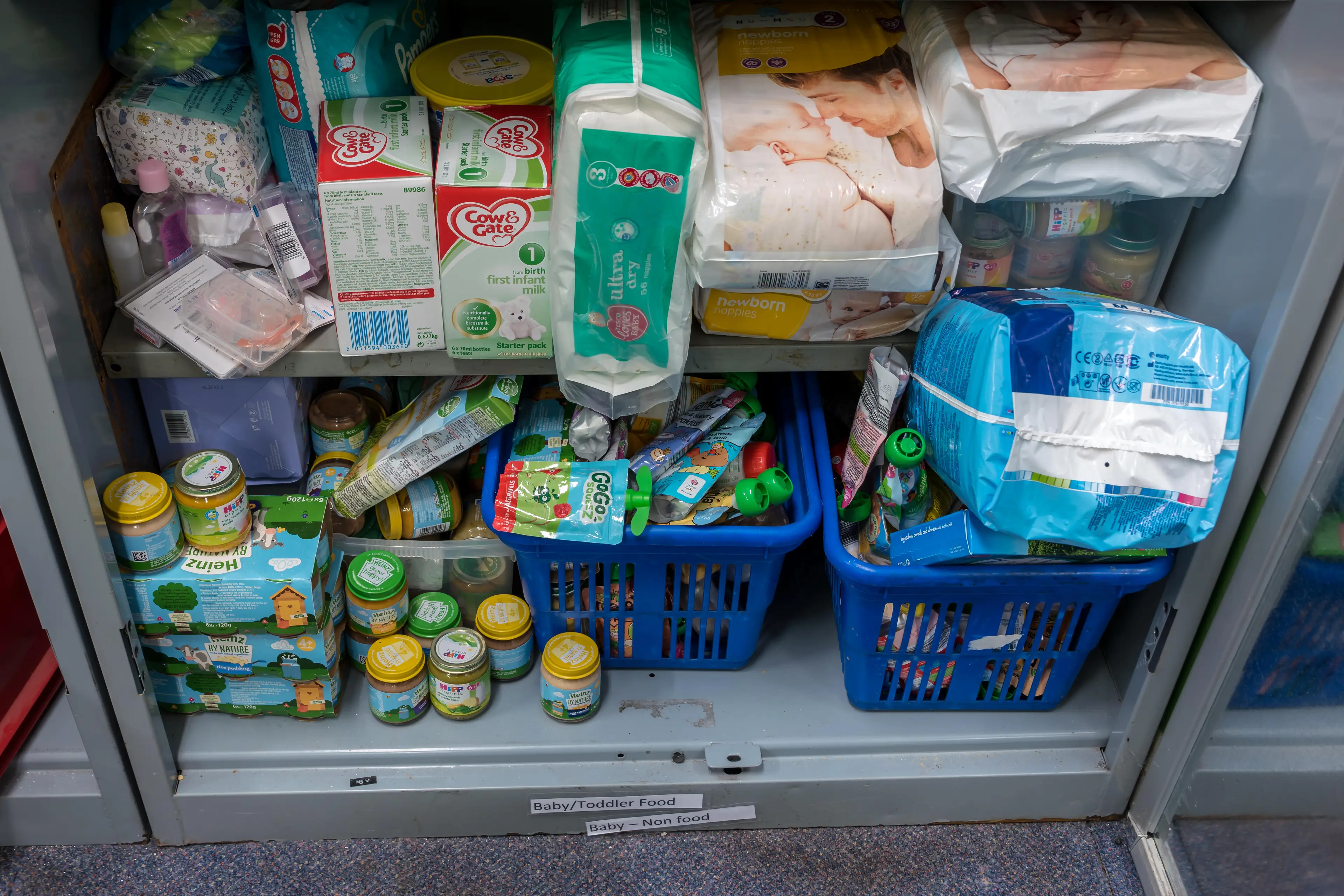
Babies are being restricted to ‘one nappy a day’ because families simply can’t afford them, with calls for support for those struggling as the cost of living crisis continues.
New research by a baby bank network found that 83 percent of families are having to skimp on nappies, with some forced to reuse ones that have been soiled or use sanitary towels.
The NHS advises changing a nappy as soon as possible after a baby has done a wee or poo, saying young infants may need changing as many as 10-12 times a day, while older babies might need to be changed 6-8 times.
However, with prices going ‘through the roof’, many families are finding their budgets won’t stretch far enough to meet the demand.
Advert

Emilie De Bruijn, the chair of a baby bank in Hartlepool, told ITV News: "It's becoming a must situation where if it's just a little bit wet, can we just squeeze that little bit more time out of it?
"Can we leave it that little bit longer? And it's because recently as well, the cost of nappies has shot through the roof."
De Bruijn also said she has seen a rise in families visiting baby banks like hers.
She added: "So not only has everything else gone up but the nappies themselves are now more expensive. Parents are coming more often.
"And we've had some ladies basically begging and saying, please, please, can you help me."
Dr Dinta Thakkar, A GP from Leicester, warned that parents shouldn’t ignore NHS advice when it comes to changing babies’ nappies, saying children can develop nappy rashes if not changed regularly.
The NHS website advises 'frequent nappy changes' for babies, saying: "Babies have very delicate skin so their nappy needs to be changed as soon as they wet or poo themselves, otherwise their skin becomes sore and red.
"Changing your baby’s nappy as soon as possible after they’ve done a wee or poo will help prevent nappy rash."
Thakkar explained how there are components within wee a poo – most commonly, ammonia – which have contact with the skin and can cause skin irritation.
“Then unfortunately babies can develop what we would class as a nappy rash, which is redness, soreness, you can get skin irritation causing little legions,” Thakkar told ITV News.

While disposable nappies are a popular choice among parents, Laura Davies, the founder of the charity Nappy Gurus, says a more cost-effective option may be reusable nappies – which are available at nappy libraries across the UK.
"A typical spend on single-use nappies over the course of infancy is about twelve hundred pounds, whereas we know that reusable nappy parents are typically spending about £300 on their nappies,” she said, explaining how you then have the 'cost of washing', but that this factor is 'about £1.47 a week'.
"That's including energy, water and detergent costs," Davies added.
A spokesperson for the government said it was 'committed to supporting families with children, which is why we increased both child benefit and child tax credits in line with inflation this year'.
If you've been affected by any of the issues in this story, you can find more information about where to get help from Turn2Us via their website.
Topics: Parenting